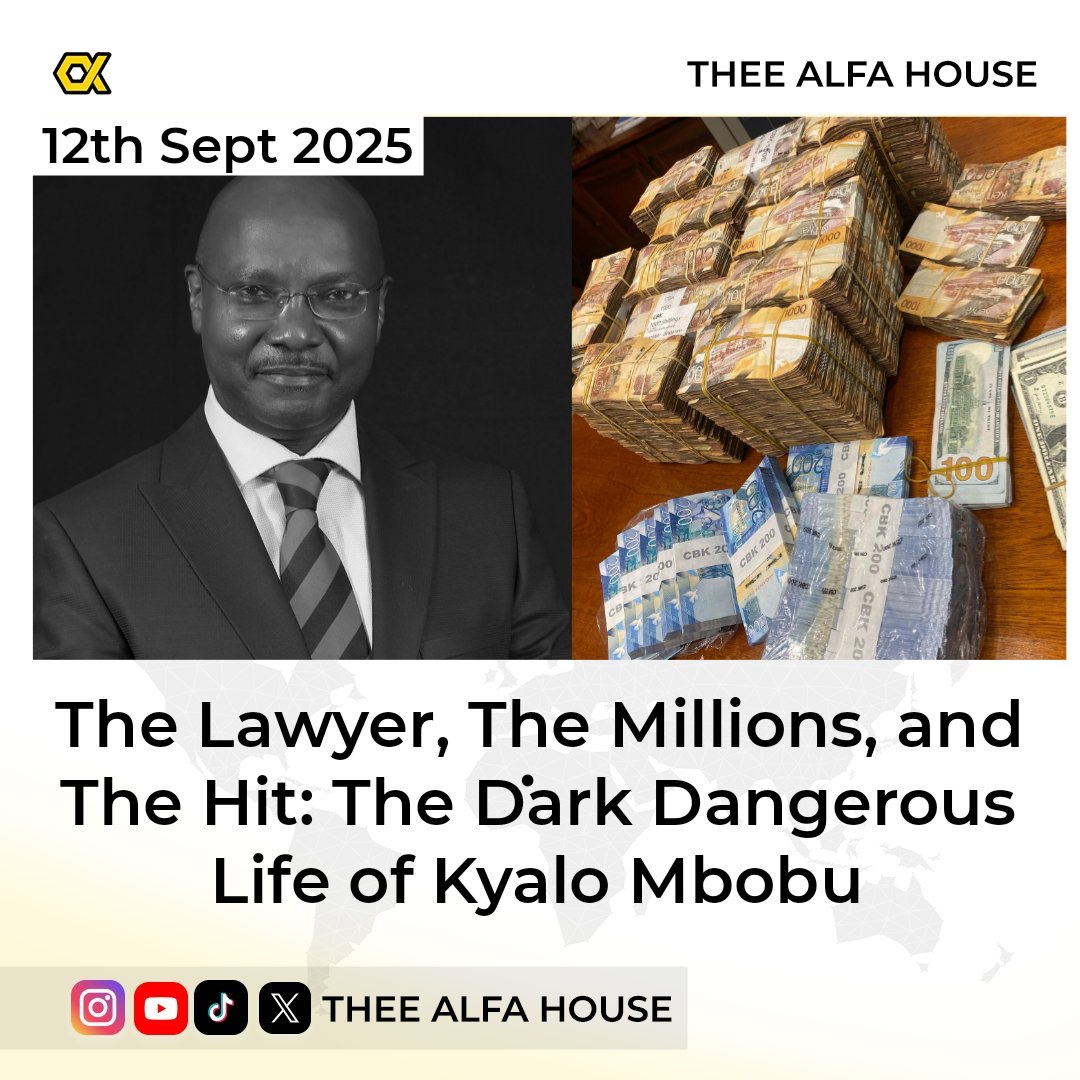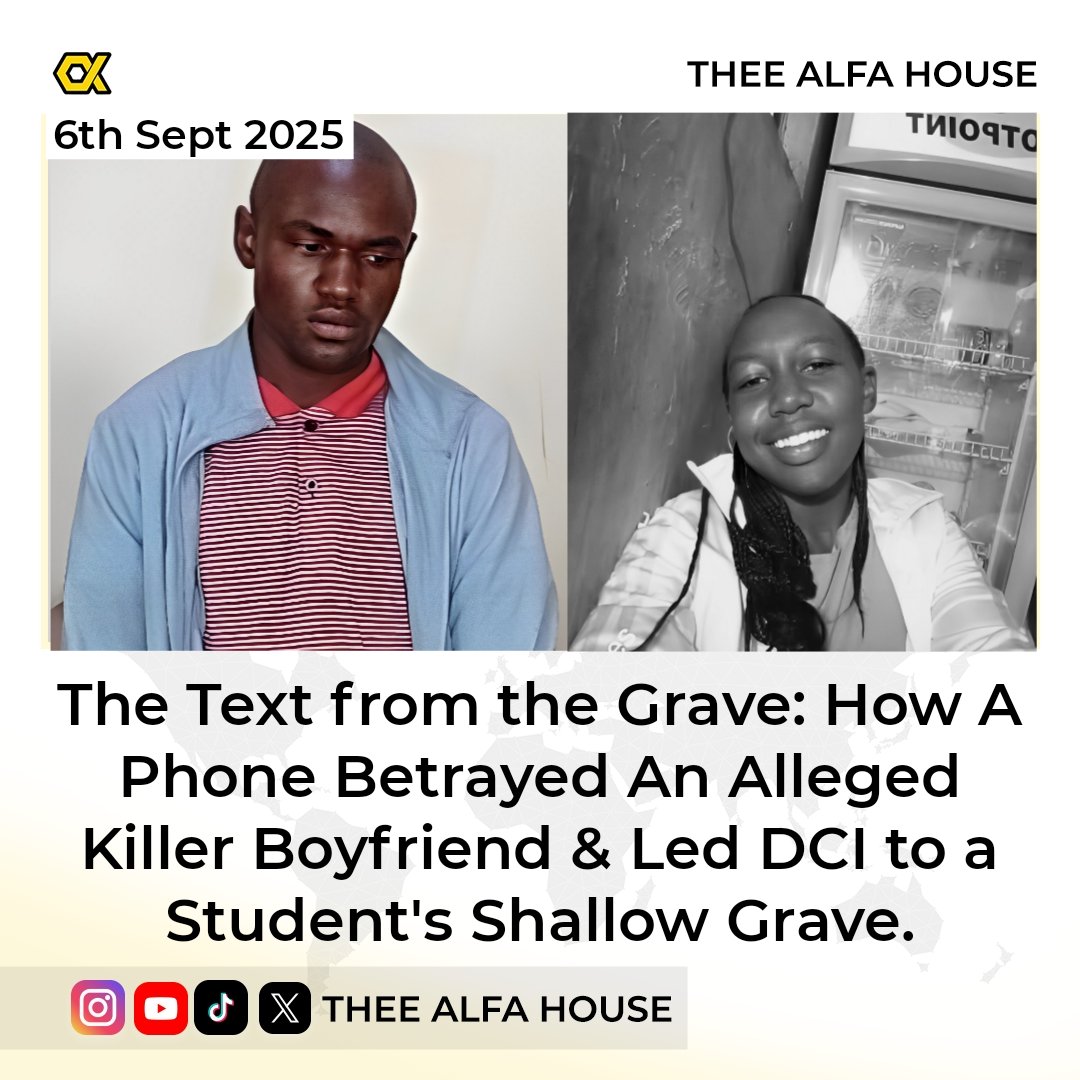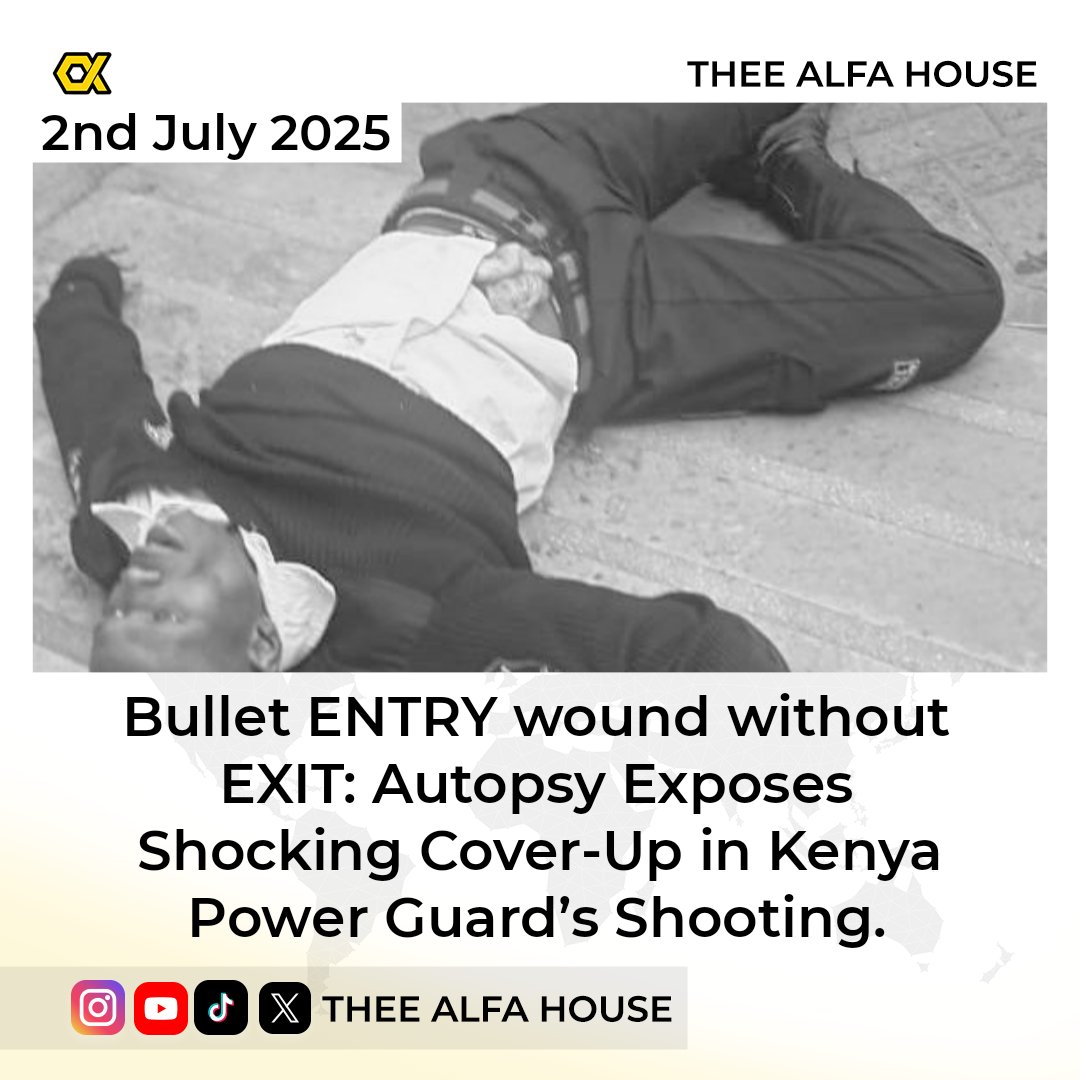He was a pillar of the legal community, but beneath the surface lay a chilling secret: Did his financial woes and betrayal of trust finally deliver a death sentence? THREAD 🧵 

Part 1: THE PERFECT LIFE OR ILLUSIONS?
Everyone knew Lawyer Mbobu as a successful man. He worked in a tall city building, taught law at the university, and gave advice to powerful people. He was always smiling, always generous, the kind of man who would joke with the cleaners about football. This was the perfect picture he showed the world.
But behind that picture was a terrifying secret. The Standard's investigation has found that banks had long blacklisted him. The respected lawyer was in deep financial struggles. To survive, he had turned to lenders in the city: shylocks who charge very high interest and got trapped in a nightmare of never-ending debt. But it didn't begin with debts.
Everyone knew Lawyer Mbobu as a successful man. He worked in a tall city building, taught law at the university, and gave advice to powerful people. He was always smiling, always generous, the kind of man who would joke with the cleaners about football. This was the perfect picture he showed the world.
But behind that picture was a terrifying secret. The Standard's investigation has found that banks had long blacklisted him. The respected lawyer was in deep financial struggles. To survive, he had turned to lenders in the city: shylocks who charge very high interest and got trapped in a nightmare of never-ending debt. But it didn't begin with debts.
Part 2: THE BETRAYAL OF TRUST THAT COST MILLIONS.
His deepest trouble began with a simple job for a church group. They trusted him to help sell two pieces of land in Karen for Sh250 million. The money was paid into his account. But when it was time to give the church their money, he didn't.
He held back Sh97 million, claiming it was his fee. The church took him to court, shocked that a man they saw as a fellow believer could do this. A judge ruled against him, ordering him to pay the money back. It was a stunning fall from grace for a man of his stature.
His deepest trouble began with a simple job for a church group. They trusted him to help sell two pieces of land in Karen for Sh250 million. The money was paid into his account. But when it was time to give the church their money, he didn't.
He held back Sh97 million, claiming it was his fee. The church took him to court, shocked that a man they saw as a fellow believer could do this. A judge ruled against him, ordering him to pay the money back. It was a stunning fall from grace for a man of his stature.
Part 3: THE DEBT Trap THAT SWALLOWED HIM WHOLE
The church money was just the start. He was tangled in a web of debts from many lenders. One loan of Sh10 million had grown to a monstrous Sh72 million because he stopped paying. Another loan for a flower farm, Sh17 million, ballooned to Sh52 million after the business failed.
He was borrowing from one lender to pay another, a desperate game that was mathematically impossible to win. Each loan was a chain, and together, they were slowly strangling him financially.
The church money was just the start. He was tangled in a web of debts from many lenders. One loan of Sh10 million had grown to a monstrous Sh72 million because he stopped paying. Another loan for a flower farm, Sh17 million, ballooned to Sh52 million after the business failed.
He was borrowing from one lender to pay another, a desperate game that was mathematically impossible to win. Each loan was a chain, and together, they were slowly strangling him financially.
Part 4: THE LAWSUITS and THE THREAT OF LOSING EVERYTHING.
People were taking him to court, one after another. A businessman sued him for Sh40 million, claiming Mbobu's firm had received the money but never passed it on. Another company was about to auction his property because he had used it as collateral for a loan he couldn't repay.
The walls were closing in. The respected lawyer was spending his last days not in court fighting for clients, but fighting a swarm of legal cases against himself, trying to stop people from taking everything he owned.
People were taking him to court, one after another. A businessman sued him for Sh40 million, claiming Mbobu's firm had received the money but never passed it on. Another company was about to auction his property because he had used it as collateral for a loan he couldn't repay.
The walls were closing in. The respected lawyer was spending his last days not in court fighting for clients, but fighting a swarm of legal cases against himself, trying to stop people from taking everything he owned.
Part 5: THE CHILLING QUESTION LEFT BEHIND.
When he was killed, Kyalo Mbobu owed hundreds of millions. He was a man under crushing pressure, living a double life of public success and private financial ruin. This does not mean his debts got him killed.
But it reveals a shocking truth: the brilliant lawyer who argued in fancy courts was himself trapped in a real-life courtroom of his own making, with no way out. His death is not just a murder mystery, but a tragic story of a man who lost control of the very thing he mastered: the law.
Credits: The Standard.
When he was killed, Kyalo Mbobu owed hundreds of millions. He was a man under crushing pressure, living a double life of public success and private financial ruin. This does not mean his debts got him killed.
But it reveals a shocking truth: the brilliant lawyer who argued in fancy courts was himself trapped in a real-life courtroom of his own making, with no way out. His death is not just a murder mystery, but a tragic story of a man who lost control of the very thing he mastered: the law.
Credits: The Standard.
• • •
Missing some Tweet in this thread? You can try to
force a refresh








